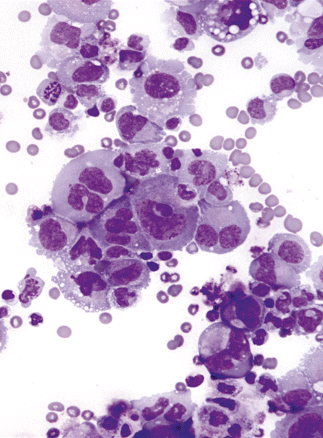The Bleeding & Clotting Disorders Institute (BCDI) is proud to announce the publication of ‘Rapid Discrimination of the Phenotypic variants of von Willebrand Disease’ by Associate Medical Director, Dr. Jonathan Roberts, in Blood, the Official Journal of the American Society of Hematology. The article describes the development of the ELISA Assay that assists in rapid diagnosis of variant von Willebrand Disease.
Dr. Roberts collaborated with Dr. Montgomery, international thought leader in the field of VWD and hemophilia research at the BloodCenter of Wisconsin, to develop a novel ELISA-based von Willebrand Factor (VWF) multiplex activity assay to assign phenotypes among type 1 and 2 VWD and had an overall 88% accuracy rate. The findings show that the assay correlates with traditional VWF assays, but can provide a much more rapid diagnosis for variant VWD.
“This assay may provide a rapid diagnostic method for variant VWD, and change the way in which we currently evaluate patients with bleeding symptoms. Since it is a screening test, and has potential to lower costs, it may allow more patients to be screened for variant VWD,” said Dr. Jonathan Roberts, Associate Medical Director of the Bleeding & Clotting Disorders Institute and Assistant Professor of Pediatrics at the University of Illinois College of Medicine at Peoria.
The article was published in Blood 2016 volume 127, issue 20 and can be read online here: http://www.bloodjournal.org/content/127/20/2472.
Roberts JC, Morateck PA, Christopherson PA, Yan, K, Hoffmann RG, Gill JC, Montgomery RR, Zimmerman Program Investigators. Rapid Discrimination of the Phenotypic Variants of von Willebrand Disease. Blood 2016; 127(20):2472-2480.
About the Study
The ELISA assay was tested on 160 patients with type 2 VWD who were enrolled in the Zimmerman Program for Molecular and Clinical Biology of von Willebrand Disease. The assay successfully identified type 1C, 2A, 2B, 2M, 2N VWD with a 92.5% accuracy in the patient study cohort. The VWF multiplex activity assay can be useful for a same-day screening assay when considering the diagnosis of variant VWD in an individual.
About von Willebrand Disease
The most common inherited bleeding disorder is von Willebrand Disease (VWD), affecting up to 1% of the population. This disorder occurs equally in males and females. People who have VWD take longer to stop bleeding than normal. Von Willebrand factor (VWF) is a protein in the blood that has two important functions in helping blood to clot. VWF is the “glue” that helps platelets stick to the blood vessel wall at the site of injury. VWF binds to circulating clotting factor VIII and protects it from being broken down in the blood.
There are many subtypes of VWD:
- Type 1 – Reduced amount of von Willebrand factor (VWF) in blood
- Type 2A, 2B, 2M, and 2N – von Willebrand Factor (VWF) levels may be normal, but the VWF does not work properly
- Type 3 – Very little or no von Willebrand Factor (VWF) in the blood
Some symptoms of Von Willebrand Disease may include: easy bruising, frequent or excessive nosebleeds, heavy menstrual bleeding and heavy and prolonged bleeding after surgery, dental work, injury or childbirth.
About Dr. Jonathan Roberts
Dr. Roberts is the Associate Medical Director and Research Director at the Bleeding & Clotting Disorders Institute. He is board-certified in Pediatrics and Pediatric Hematology/Oncology. In addition, Dr. Roberts is an Assistant Professor of Pediatrics at the University of Illinois College at Medicine at Peoria.
Dr. Roberts has been recognized for his research with bleeding disorders. He has received multiple young investigator achievement awards from the American Society of Hematology (ASH) and International Society on Thrombosis and Haemostasis (ISTH) with his research featured at the 2014 Highlights of ASH. His research areas of interest are in advancing novel laboratory assay development to improve the diagnosis of von Willebrand Disease and to enhance individualized clinical management of hemophilia. Also, he was one of 32 competitively selected international applicants to attend the 2013 Hemophilia Academy in Edinburgh, Scotland. His clinical and translational research has been acknowledged by the National Hemophilia Foundation, the National Institutes of Health and other sponsors with a strong track record of obtaining grant funds.
Dr. Roberts graduated from the Southern Illinois School of Medicine in 2008 and went on to complete his internship and residency in Pediatrics at the University of Illinois College of Medicine at Peoria at OSF St. Francis Children’s Hospital in 2011. Dr. Roberts then completed a three-year fellowship in Pediatric Hematology/Oncology/Blood & Marrow Transplantation at the Medical College of Wisconsin/Children’s Hospital of Wisconsin in 2014.
Dr. Roberts already has authored or co-authored numerous peer-reviewed papers and abstracts.

